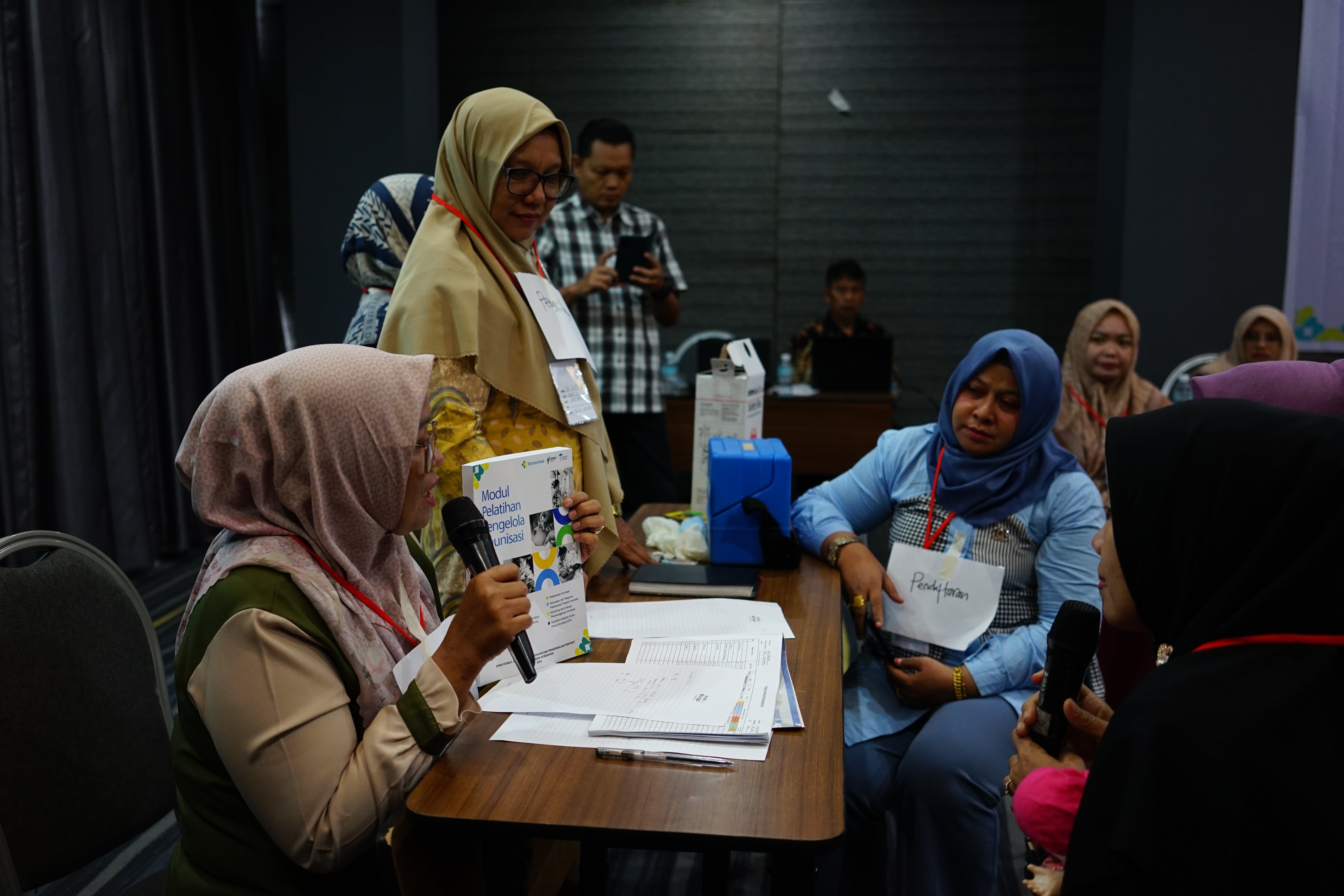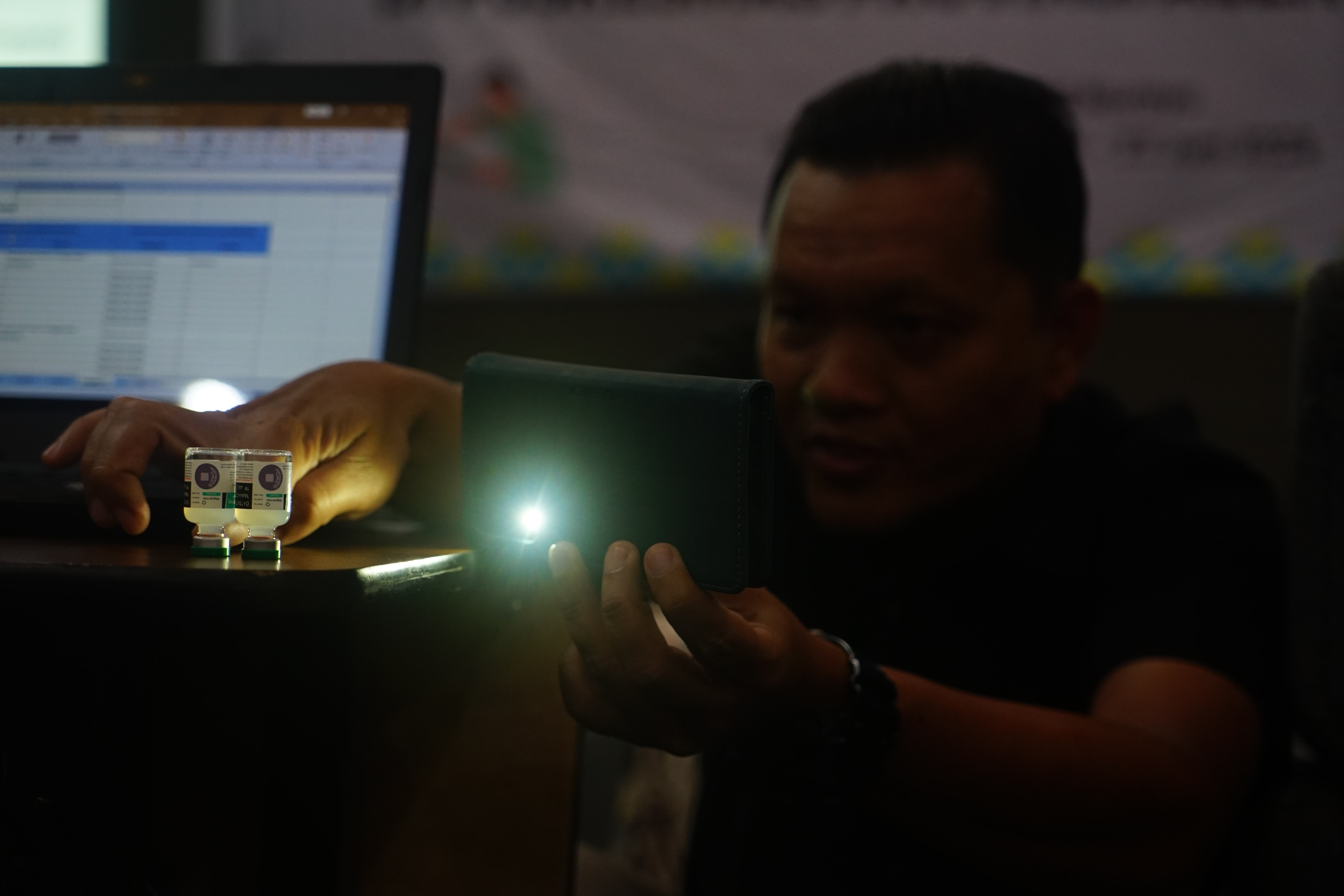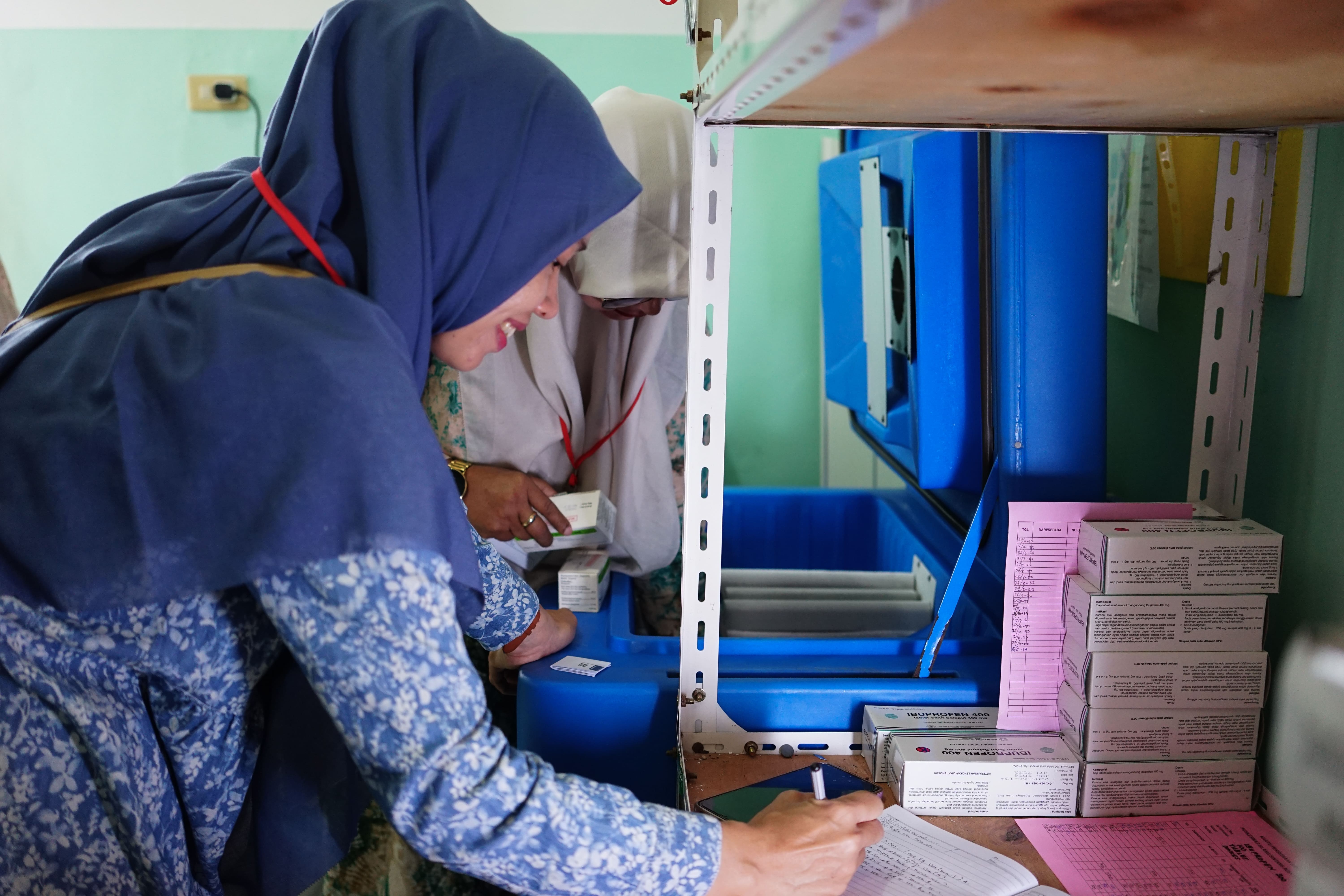For the past 5 years, midwife-turned-immunization coordinator Nur Khalida has been based at Puskesmas Ingin Jaya, a neat, yellow-washed building in Aceh Besar, on the outskirts of Banda Aceh City.
Most days, Nur works with local midwives on how best to improve immunization coverage, focusing on addressing vaccine hesitancy.
"I believe in using a personal approach to build trust with the community,” she explains, adding, “I always offer my phone number for follow-up questions, which helps alleviate fears.”
 Nur Khalida (left) and other participants engage in a role-play exercise. These practical sessions on immunisation administration and role-playing exercises helped participants effectively explain diseases and vaccinations to parents. (WHO/Fieni Aprilia)
Nur Khalida (left) and other participants engage in a role-play exercise. These practical sessions on immunisation administration and role-playing exercises helped participants effectively explain diseases and vaccinations to parents. (WHO/Fieni Aprilia)
In Aceh, recent outbreaks of vaccine-preventable diseases such as measles, polio and diphtheria have highlighted the urgent need to improve immunization coverage. In 2023, just 20.8% of children in Aceh were fully immunized, well below the national average of 95.3%.
However, as Nur’s experience shows, well-trained and empowered health workers can boost vaccine acceptance, protect communities and ultimately save lives.
“Health workers are the bridge between public health policies and the communities they serve,” explains Dr Muhammad Fathun, WHO Technical Officer for vaccination in Aceh. “It’s not enough to simply offer vaccines; they must be able to communicate, educate and earn people’s trust.”
This simple yet crucial observation was the foundation of a Ministry of Health (MoH) and World Health Organization (WHO)-supported training in Banda Aceh City, on 18–27 June 2024.
 Trainers demonstrated how to identify frozen vaccines, do the shake test, and how to store them properly. (WHO/Fieni Aprilia)
Trainers demonstrated how to identify frozen vaccines, do the shake test, and how to store them properly. (WHO/Fieni Aprilia)
“Many people in the community fear adverse events following immunization or face opposition from family members, particularly fathers,” says Dr Fathun. “So, we addressed these concerns with participants through practical role-playing exercises.”
“Ultimately, frontline health workers are the ones who have the most direct contact with families, so they need to be equipped with the right tools and communication skills to address community concerns in a compassionate and understanding way."
The MoH and WHO-supported training was conducted in two five-day batches, bringing together 180 participants from 7 districts in the province. This included 102 immunization officers and 78 midwives, mostly from puskesmas
In addition to community engagement and education, the training covered key skills such as microplanning and vaccine cold chain management, including how to identify frozen vaccines.
 Participants engage in hands-on record keeping and cold chain management training at a Puskesmas. (WHO/Fieni Aprilia)
Participants engage in hands-on record keeping and cold chain management training at a Puskesmas. (WHO/Fieni Aprilia)
Sessions were also held on reporting immunization programme implementation, surveillance of adverse events following immunization, and monitoring and evaluating immunization activities.
Nur notes that both the content of the training and the participants marked a significant shift from earlier approaches.
Previously, training for central health office staff was prioritized, while training for midwives and immunization officers was minimal.
This is despite, Nur says, the immunization officers often knowing who was vaccinated and who was not.
In Aceh, gaps are being bridged – one health worker at a time.
This activity was supported by the Australian government through the Department of Foreign Affairs and Trade.
Written by Fieni Aprilia, Digital Communications Officer, WHO Indonesia
